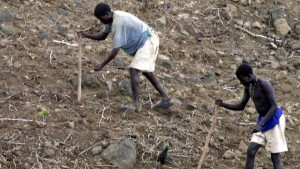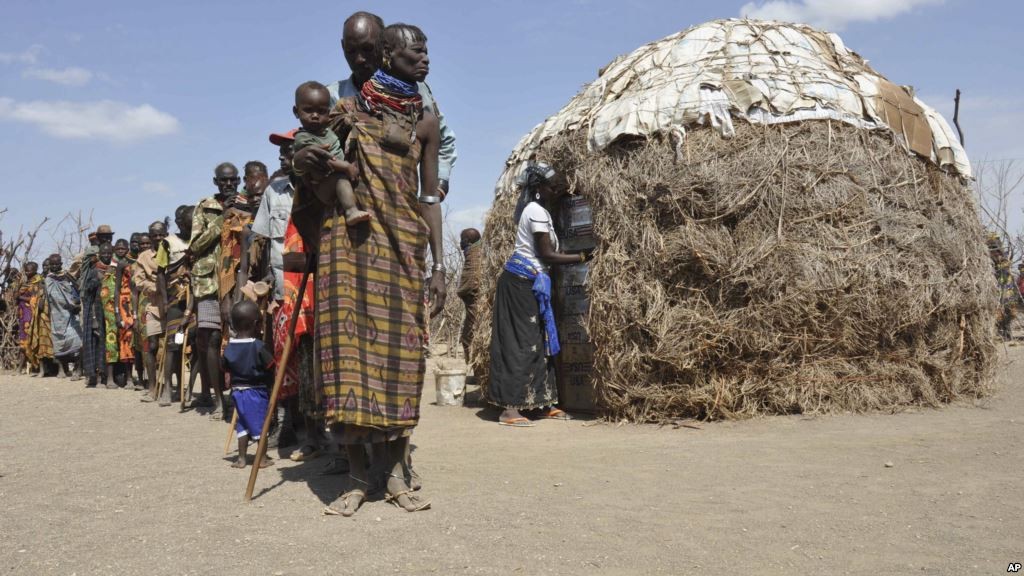
Save the Children is calling on the United Nations to urgently raise the global alarm on Ethiopia’s worst drought in 50 years as global leaders, including UN Secretary General Ban Ki-moon, prepare to arrive in the nation’s capital for the 26th African Union Summit starting on January 25th.
The call comes as new figures reveal an estimated *350,000 newborns are expected in drought-affected communities in the six months to August 2016 when Ethiopia’s ‘hunger season’ peaks, according to Save the Children.
The aid agency’s Ethiopia Country Director John Graham says that the international community needs to immediately increase funding towards the $1.4 billion drought appeal – which is less than one third funded to date.
“If emergency funding doesn’t escalate very soon, there is a real risk of reversing some key development progress made in Ethiopia over the past two decades, including the reduction of child mortality rates by two thirds, and halving the percentage of the population living below the poverty line,” he warns.
“The Ethiopian Government has shouldered much of the funding burden for this crisis to date but if they don’t get more immediate help from foreign donors they may be forced to redirect funding from other vital areas, including education and maternal and child health programs, in order to buy life-saving food aid.”
Drought conditions, triggered by El Niño, began in June of last year in remote North Eastern areas of the country, as well as many parts of Somalia and Somaliland, and have spread rapidly to the more populous highlands, leaving an estimated 10.1 million people in need of food aid.
Save the Children currently classifies just two global humanitarian crises at the organisation’s highest level of emergency – the on-going war in Syria, and the drought in Ethiopia.
“The world is dealing with a multitude of massive humanitarian crises from Syria to Yemen and South Sudan, but the scale of the drought in Ethiopia is like nothing I’ve seen before in the 19 years that I’ve lived in this country,” Mr Graham says.
“This is a code red emergency and it needs to be treated like one, yet I have never seen such a small response to a drought of this magnitude from the UN or the international community.”
Mr Graham is also extremely concerned about the impact the drought could have on the 350,000 newborns expected in drought affected areas in the next six months.
“Giving birth in a desperate situation where there are already serious food shortages, and where livestock have died en masse taking away a vital source of nutrition for breastfeeding mothers, is extremely dangerous for both newborns and their mothers,” he said.
“There are an increasing number of pregnant and lactating mothers suffering from malnutrition because of the drought. This not only reduces their chances of delivering a baby healthily, but also means many will struggle to feed babies who are already significantly underweight. Newborns and pregnant mothers need to have access to quality health care services and a nutritious diet.”
This year more than 2.5 million children are expected to drop out of the education system due to the drought, while an estimated 400,000 children are at risk of suffering severe acute malnutrition according to the Government of Ethiopia.

